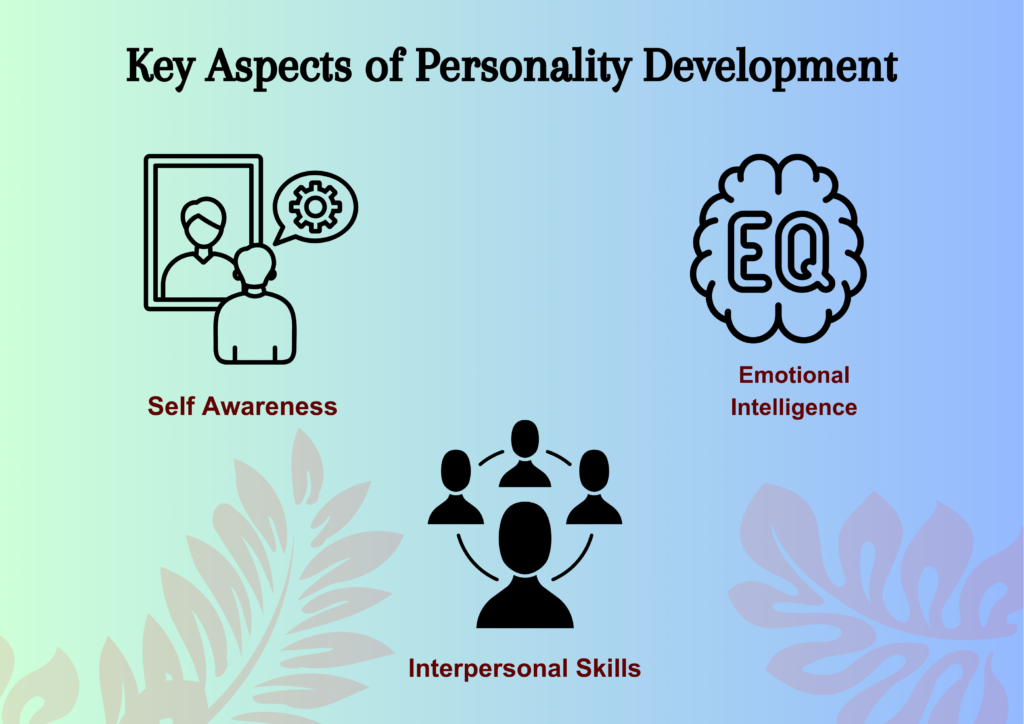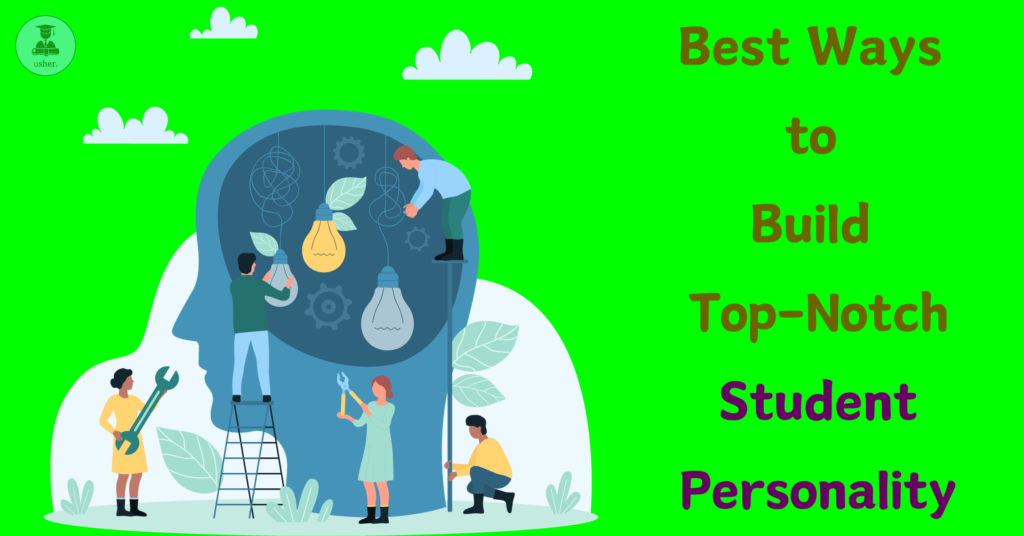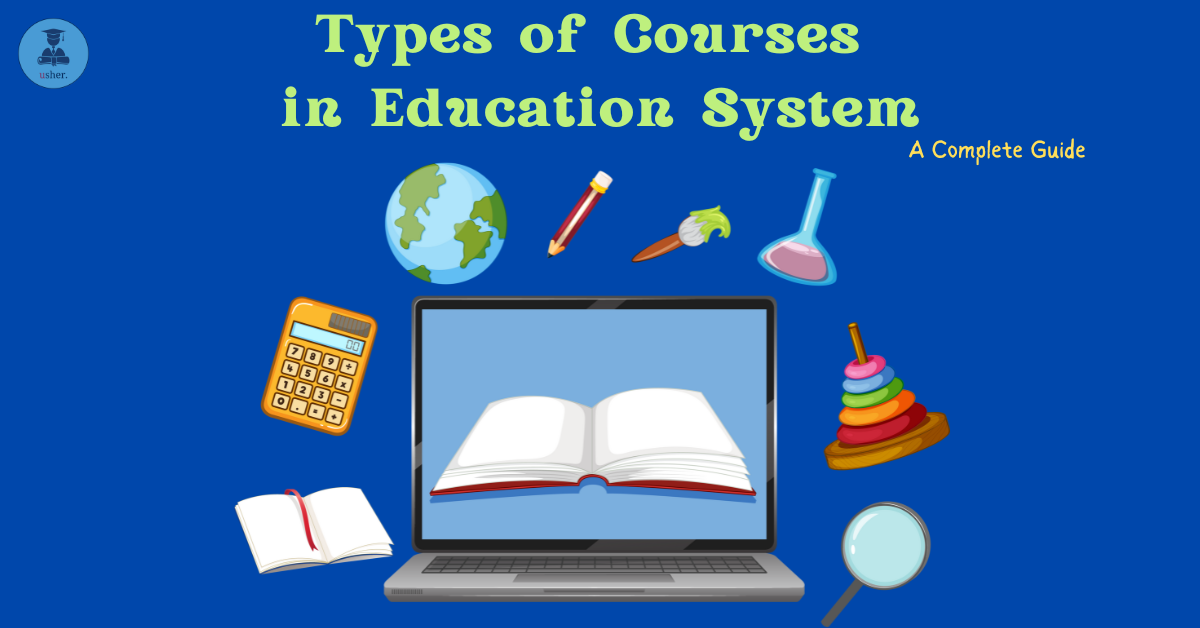What is Personality Development?
Personality development refers to the process of enhancing and refining one’s individual traits, behaviors, and characteristics. It involves acquiring new skills, improving communication abilities, and developing a positive mindset. This development aims to foster personal growth, boost self-confidence, and enhance overall well-being.
Why is Personality Development Important for Students?
Personality development plays a crucial role in a student’s life for several reasons:
Self-awareness
Personality development helps students gain a better understanding of themselves, their strengths, weaknesses, and values. This self-awareness allows them to make informed decisions, set realistic goals, and navigate challenges effectively.
It equips students with essential life skills such as problem-solving, adaptability, and resilience that are necessary for success in both academic and personal endeavors.
Confidence
A well-developed personality enhances self-confidence. This confidence helps students in public speaking, presentations, and social interactions, setting a strong foundation for their future endeavors.
Social Skills
Developing personality involves learning effective communication, active listening, and empathy. These social skills are crucial for building and maintaining relationships, collaborating with others, and navigating diverse social situations. They also contribute to a positive and inclusive learning environment, fostering teamwork and cooperation among students.
Adaptability
Adaptability is another important aspect of developing one’s personality.
It involves being open to change, embracing new experiences, and being able to adjust to different situations and environments.
Being adaptable allows individuals to thrive in various settings, whether it be in the workplace or in personal relationships.
It also helps individuals become more resilient and better equipped to handle challenges and uncertainties that may arise in life.
Leadership Qualities
Leadership qualities are essential for individuals who want to make a positive impact and inspire others.
These qualities include strong communication skills, the ability to motivate and empower others, and the willingness to take initiative and make difficult decisions.
Effective leaders are also able to adapt their leadership style to different situations and individuals, creating a supportive and inclusive environment where everyone can contribute their best.
Emotional Intelligence
Understanding and managing emotions is key to navigating through life’s ups and downs.
A well-developed personality often involves having a high level of emotional intelligence.
Emotional intelligence allows individuals to recognize and understand their own emotions, as well as the emotions of others.
It also enables them to effectively manage and regulate their emotions in order to build strong relationships and make sound decisions.
Career Growth
Career growth is an important aspect of a student’s personal and professional development.
It involves continuously learning new skills, taking on challenging projects, and seeking opportunities for advancement.
By investing in their career growth, students can increase their knowledge and expertise, enhance their job performance, and open doors to new opportunities and higher positions.
Personal development can set students apart in the job market and help them excel in their careers.
Well-being
A developed personality often leads to a better sense of well-being.
When students invest in personal development, they are more likely to have a positive self-image, improved mental health, and a greater sense of fulfillment in their lives.
Moreover, prioritizing well-being can lead to better work-life balance and overall happiness, which can greatly contribute to their success in both their personal and professional lives.

Tips And Techniques For Personality Development
Self-reflection
Self-reflection is an important tool for self-awareness and personal growth. By taking the time to reflect on our thoughts, feelings, and actions, we can gain a deeper understanding of ourselves and identify areas for improvement.
Self-reflection allows us to develop a greater sense of empathy and understanding towards others, which can greatly enhance our interpersonal skills.
Set Goals
Setting goals is another crucial aspect of personality development. By setting clear and achievable goals, we can focus our efforts and work towards personal growth and self-improvement. Goals provide us with direction and motivation, helping us to stay focused and committed to our development journey.
Setting goals allows us to measure our progress and celebrate our achievements along the way, boosting our self-confidence and self-esteem.
Build Communication Skills
Communication skills are essential for effective interaction and building strong relationships with others.
Developing good communication skills involves not only being able to express oneself clearly and articulately, but also actively listening and understanding others.
Effective communication allows us to convey our thoughts and ideas effectively, resolve conflicts, and collaborate with others successfully.
It is a skill that can greatly enhance our personal and professional relationships, as well as contribute to our overall success in life.
Enhance Emotional Intelligence
Emotional intelligence is another important aspect of developing strong personality and relationships with others.
It involves being aware of and managing our own emotions, as well as being empathetic and understanding towards the emotions of others.
By honing our emotional intelligence, we can better navigate social situations, build trust, and foster deeper connections with those around us.
Additionally, having a high level of emotional intelligence can also help us effectively handle conflicts and maintain healthy boundaries in our relationships.
Confidence Building
Students should step out of their comfort zones and engage in activities that challenge them and gradually increase their confidence.
By doing so, students will develop a sense of accomplishment and belief in their abilities, which will further enhance their self-esteem and overall confidence.
A supportive and nurturing environment is important for students where they feel safe to take risks and learn from their mistakes.
Continuous Learning
Continuous learning is crucial for students to expand their knowledge and skills beyond the classroom. It allows them to adapt to new situations, think critically, and stay updated with the latest information. Continuous learning encourages students to be curious and explore different subjects, fostering a lifelong love for learning.
Acceptance of Feedback
Acceptance of feedback is another key aspect of a nurturing personality for students.
It helps them understand their strengths and areas for improvement, and encourages them to grow and develop.
When students feel supported and valued, they are more likely to embrace feedback as an opportunity for growth rather than seeing it as criticism.
This acceptance of feedback ultimately leads to continuous improvement and success in their academic journey.
Time Management
Building a personality requires the management of time. Therefore, students need to learn effective time management skills in order to develop their personality.
By effectively managing their time, students can prioritize tasks, set goals, and allocate sufficient time for personal growth and development.
Learning to manage their time efficiently allows students to balance their academic responsibilities with extracurricular activities and self-care, fostering a well-rounded personality.
Effective time management helps students avoid procrastination and develop a sense of discipline and responsibility, which are important qualities for personal growth and success in various aspects of life.
Healthy Lifestyle
In addition to time management, maintaining a healthy lifestyle is crucial for personal growth. This includes regular exercise, proper nutrition, and adequate sleep.
By prioritizing their physical well-being, students can improve their focus, energy levels, and overall productivity.
Furthermore, adopting healthy habits early on can lead to long-term benefits in terms of physical and mental health.
Develop Interests
By exploring different hobbies and activities, individuals can discover their passions and develop new skills.
This can lead to a sense of fulfillment and satisfaction, as well as provide opportunities for personal and professional growth.
Pursuing interests outside of academic or work-related responsibilities can help students maintain a healthy work-life balance and prevent burnout.
I encourage students to explore hobbies and interests!
Start Networking
Building relationships with like-minded individuals can create a sense of belonging and reduce feelings of isolation.
Networking can open doors to new opportunities, such as internships or job offers, which can contribute to overall well-being and self-esteem.
Go and interact with a diverse range of people, seek out networking opportunities, cultivate meaningful connections and mend your personality through socializing and collaborating with others.
Have Role Models and Mentors
Role models and mentors can provide guidance and support, helping individuals navigate challenges and achieve their goals.
They can offer valuable insights, share experiences, and provide advice based on their own successes and failures.
Having role models and mentors can inspire individuals to strive for greatness, push themselves to reach their full potential and significantly aid in personal growth.
Practice Positivity
Building a positive personality involves cultivating a positive mindset and focusing on the good in every situation.
It can help students overcome obstacles, build resilience, and maintain a healthy outlook on life. Practicing positivity can also have a ripple effect, inspiring others to adopt a similar mindset and creating a more uplifting and supportive environment.
Tools and Resources for Personality Development for Students
There are a variety of tools and resources available to help students in their journey of personality development. Here are a few of them:
- Self-reflection exercises, which encourage students to examine their thoughts, emotions, and behaviors. This can help them gain a deeper understanding of themselves and identify areas for growth.
- Online courses through Coursera, edX, and Udemy offers courses on communication skills, emotional intelligence, leadership, and personal development.
- Many self helf books and reading material also provide valuable insights and strategies for personal growth. These books cover a wide range of topics such as building self-confidence, managing stress, and improving relationships.

A classic on social skills and communication.

Explores the importance of emotional intelligence in personal growth.

Focuses on the growth mindset and its impact on personal development.
- Many apps and online tools are also available to support personal growth. These include meditation apps, goal-setting apps, and productivity tools that can help individuals track their progress and stay motivated.
- Attending workshops and seminars on public speaking, leadership, and personal development organized by schools or community groups.
- Counselors and mentors provide individuals with guidance and support as they navigate personal growth. These professionals can offer valuable insights, advice, and strategies for overcoming challenges and achieving personal goals.
- Many podcasts and Ted Talks are available that focus on personal growth and provide inspiration and practical tips for self-improvement. Additionally, reading books on personal development can also be a valuable resource for gaining new perspectives and strategies for personal growth.
- Personal growth can also be achieved through peer learning and group activities. Peer talks and activities help people learn from others’ experiences and get new views on personal development. Group projects and exercises can also help people practice new abilities, receive feedback, and gain confidence in a supportive atmosphere.
- Journaling is another effective tool for personal growth. By regularly writing down thoughts, feelings, and experiences, individuals can gain clarity, self-reflection, and a deeper understanding of themselves. Journaling allows for introspection and can help identify patterns or areas for improvement. It serves as a private space to explore emotions and set goals, ultimately leading to personal growth and self-discovery.
- Social media and online communities offer resources, such as articles, videos, and webinars, that can further enhance personal growth journeys. However, it is important to be mindful of the content consumed and ensure that it aligns with personal values and goals.
These tips and strategies need to be modified to accommodate the specific requirements and personalities of particular students. Personality development is a journey that is unique for each person, and since the process may take some time, patience and persistence are essential components of the journey.
All the Best!




